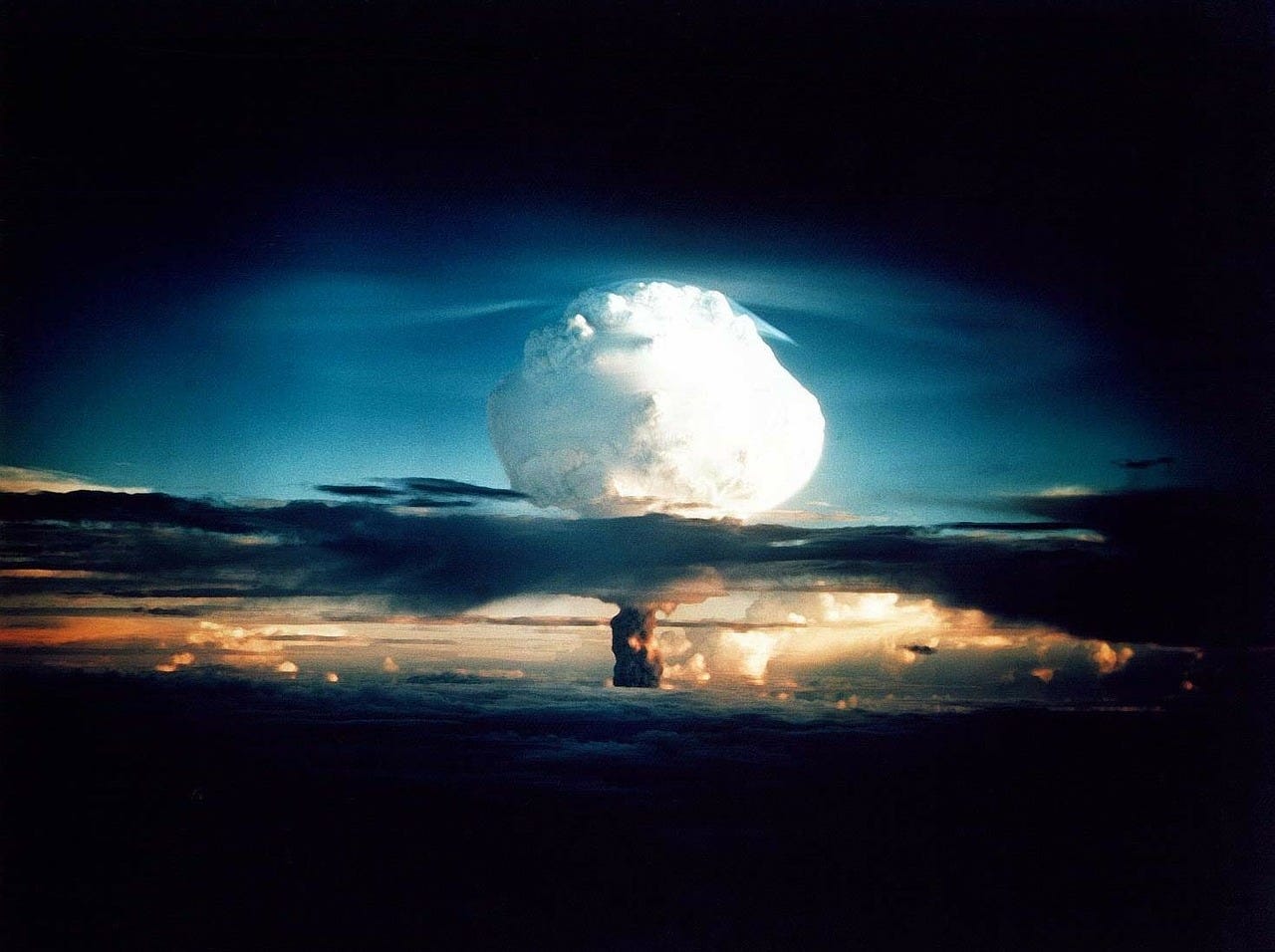American Health Insurance is a Mass Casualty Event
Includes a modest proposal.
Imagine waking up to a headline that reads, “Atlanta Demolished by Nuclear Bomb,” and learning that the city’s 498,715 residents were dead. The shock to our society would be unimaginable. And yet, we just learned that the American health system killed more people than that in the last two years alone and hardly anyone noticed. The fact that we’ve also wasted more than a trillion dollars barely merits an afterthought.
The figures are laid out in a new report from the National Academy of Sciences. The goal of the report is to calculate how many lives we could have saved and how much less money we would have spent if a single-payer health system had been in place before the COVID-19 pandemic. Its conclusion? More than 338,000 lives would have been saved between January 2020 and March 2022, and the country would have saved more than $105 billion in hospital expenses.
But that’s just part of the story. Even without a pandemic, the authors conclude that we would have experienced 77,675 needless deaths and added costs of $438 billion every year because we’ve refused to adopt a single-payer system. If we multiply those numbers by 2.25 (for January 2020-March 2022) and add them to the Covid losses, that tells us how much our privatized system has cost us since the pandemic began: 513,363 needless deaths, and $1,007,400,000 in wasted money. (Plus even more since the end of March.)
For a country that claims to hate fiscal irresponsibility, that’s sure a lot of wasted money. And for a country that claims to cherish life, that’s sure a lot of needless death.
No, wait. “Needless death” is far too genteel a term for what we’re doing. I’ve used the term “negligence” to describe deaths like these in the past, but that’s too mild, too. “Human sacrifice” is better.
513,363. That’s more than the population of Atlanta. Or Minneapolis, Minnesota. Or Miami, Florida. Or Kansas City, Missouri. Or Omaha, Nebraska. Bakersfield, Tampa, Tulsa. New Orleans, Cleveland, Honolulu, Cincinnati ...
I could go on, but you get the idea.
The million-plus lives we’ve lost in the pandemic should have convinced us that the life-and-death question of health care is ... well, a life-and-death question. It should also have disabused us of the notion that it is ‘moderate’ to reject single-payer care and stick with the current, lethal system instead.
That’s not ‘moderate.’ It’s murderous.
For the politicians who support the current system, don’t worry. I’m sure we can figure out how to retain its most distinguishing features once we’ve moved to single-payer healthcare. For example, we could nuke a different American city once a year, and send half a billion dollars to United Health, Aetna, Anthem and Cigna at the same time. That would preserve the primary outcomes of the system you’re so eager to embrace.
It does leave a thorny question, however. How big should our target cities be? The size of the cities listed above reflects losses during the pandemic. Won’t the kill rate go down when the pandemic passes?
The answer to that question depends on whether the pandemic ever passes and whether there will be new disease catastrophes to follow. The way we’re handling this one, it’s possible we could be in pandemic territory forever. But, fair is fair. Let’s go with the more conservative number and target smaller cities.
In non-pandemic years, the US healthcare kill rate is roughly 75-80,000, so we could plan on targeting cities of roughly that size until the next variant arises. The president’s home town of Scranton, PA qualifies. So does my home town of Utica, NY. We should all share the sacrifice, so that seems only fair.
What other cities are eligible? Wilmington, Delaware? Check. Duluth, Minnesota? You’re up. Flint, Michigan? Oh, wait, we’ve already sacrificed you. Youngstown, Ohio ... Camden, New Jersey ...Gary, Indiana ... We’ve already abandoned a lot of these cities economically, so the big corporations will hardly miss them. To the people who run this economy, the people there are already excess human inventory.
Or, here’s another thought: We could stop murdering our own population en masse. We could adopt single-payer healthcare and devote ourselves to saving lives and resources, rather than churning profits for Wall Street investors and wealthy executives.
Some people will call that idea radical, but it sounds pretty moderate to me.


It's disgusting when people die and suffer because they can't afford insurance medical care is vastly overpriced and are medicines we all deserve to live
The American gov't chooses to kill millions of Americans rather than provide medical services, they are serial killers. Why do we give them our tax money? Think twice about it next time.